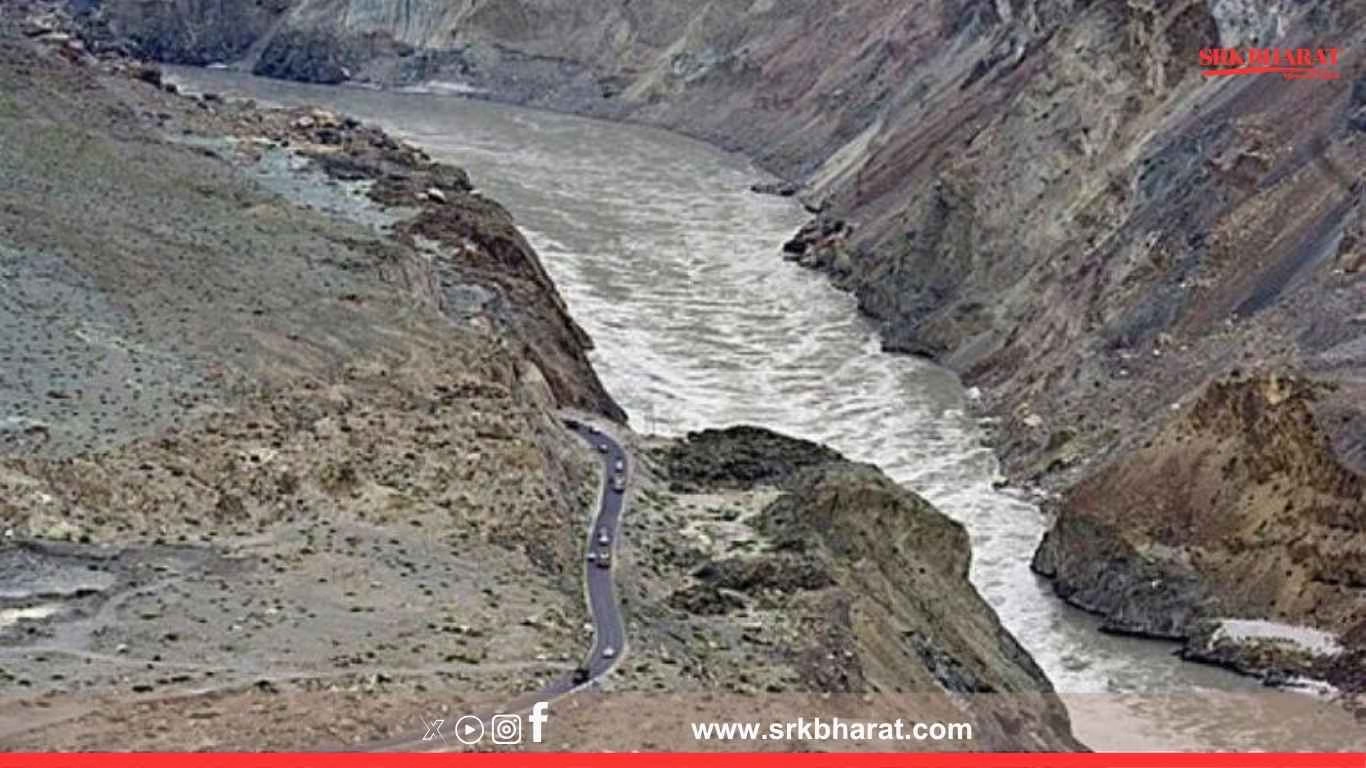Islamabad – The Karakoram Highway (KKH), often touted as the backbone of China-Pakistan connectivity, came to a grinding halt this week as protesting Pakistani traders blocked the crucial route, leaving dozens of Chinese nationals stranded and exposing growing discontent over economic disparities, trade policies, and local grievances tied to the China-Pakistan Economic Corridor (CPEC).
The protests, which erupted in the Gilgit-Baltistan region, have now entered their third consecutive day. Local traders, freight operators, and community representatives accuse the federal government and Chinese contractors of ignoring regional interests, favoring large Chinese firms over local businesses, and implementing policies detrimental to indigenous livelihoods.
Economic Flashpoint Turns Geopolitical
The Karakoram Highway, which connects Gilgit-Baltistan to China’s Xinjiang province, is not only a vital trade and logistics artery for CPEC but also a symbolic representation of the Pak-China friendship. The unexpected blockade has created both logistical disruptions and diplomatic discomfort for Islamabad.
Over 60 Chinese engineers and workers en route to various CPEC project sites, including hydroelectric dams and road construction projects, are reportedly stranded at checkpoints along the highway, as locals refuse to allow vehicular movement without a clear commitment from the authorities on their demands.
Protesters, equipped with banners, food supplies, and camping materials, have established control over key segments of the highway in the Diamer and Hunza districts, stalling over 200 commercial and government vehicles.
Key Demands of the Protesters
| Demand Category | Specific Grievances |
|---|---|
| Local Employment | Greater inclusion of local labor in CPEC projects, priority for skilled local workers |
| Trade Policy | Removal of discriminatory import/export duties imposed on small traders |
| Resource Access | Rights over mineral, water, and land resources being utilized by foreign firms |
| Infrastructure Equity | Development of roads, hospitals, and schools for affected local communities |
| Transparency & Audits | Public audit of CPEC contracts and compensation for land acquisition without consent |
The leaders of the protest accused successive Pakistani governments of treating Gilgit-Baltistan as a “corridor rather than a community,” reiterating that despite the promises made under the CPEC framework, the economic benefits have largely bypassed the region’s population.
Disruption of CPEC Supply Chains
With more than $65 billion committed under the CPEC initiative, any disruption to its logistics has immediate and ripple effects. The current blockade of KKH has delayed:
- Delivery of machinery and supplies for hydropower plants in Kohala and Bunji.
- Transit of oil and chemical containers destined for special economic zones.
- Movement of diplomatic and government delegations from Islamabad to Khunjerab.
| Impacted Sector | Current Delays (Est.) | Potential Economic Loss (PKR) |
|---|---|---|
| Energy Projects | 3–5 days | PKR 250 million |
| Road Construction | 4–7 days | PKR 180 million |
| Local Traders | Indefinite | PKR 90 million per day |
| Foreign Workforce Mobility | Standstill | Not Quantifiable |
Government’s Response
The federal government has deployed paramilitary forces near sensitive installations and continues negotiations through intermediaries. However, direct talks with protest leaders have not yielded concrete results.
Interior Ministry officials emphasized that national security concerns cannot be compromised and warned that if the blockade continues, forceful measures may be considered.
Meanwhile, the Ministry of Planning has invited representatives of the traders and community leaders to Islamabad for formal dialogue, though protesters demand that officials visit the site of agitation.
Gilgit-Baltistan Chief Minister Haji Gulbar Khan expressed solidarity with the protesters’ concerns but urged them to avoid harming Pakistan’s international commitments. “We will resolve this through negotiation, but we cannot afford to risk bilateral ties or project timelines,” he said.
Stranded Chinese Nationals: A Diplomatic Tightrope
The presence of stranded Chinese workers has created unease in Beijing. While the Chinese Embassy in Islamabad has issued a statement urging for the safety of its citizens and calling for swift resolution, it has also subtly reminded Pakistan of its obligations under bilateral security assurances.
Observers believe that while China has largely stayed silent on internal Pakistani matters, repeated incidents affecting Chinese citizens — such as past terror attacks and now infrastructural agitation — could lead to Beijing demanding stronger guarantees.
Pakistan’s Ministry of Foreign Affairs has reassured Chinese authorities that all necessary measures are being taken for the safety and eventual evacuation of affected personnel.
Historical Grievances Now Reignited
This is not the first time local populations have expressed discontent over the handling of CPEC. Over the last decade, protests have occurred intermittently in Gwadar, Skardu, and Diamer, often highlighting similar issues: lack of local representation in planning, marginalization of communities, and environmental concerns.
The Karakoram Highway itself, originally constructed in the 1960s and upgraded under CPEC, has long been viewed both as a lifeline and a symbol of exclusion for local traders who say that highway tolls, new regulations, and Chinese dominance in freight transportation have eroded their historical trade networks.
Economic Outlook if Crisis Persists
| Scenario | Likely Outcome |
|---|---|
| Short-Term Resolution | Limited economic loss, project timelines recoverable |
| Prolonged Blockade | Disruption in cross-border trade, reputational loss for Pakistan |
| Use of Force | Potential escalation, unrest in other parts of Gilgit-Baltistan region |
| Successful Negotiation | Boost in local morale, possible realignment of policy in favor of traders |
Economic analysts warn that a prolonged standoff could scare off foreign investors already cautious about Pakistan’s economic volatility. If not resolved diplomatically, the issue could create permanent distrust between the state and frontier communities, undermining the future of mega-projects in the region.
Voices from the Ground
Mohammad Naseer, a trader from Chilas, voiced frustration at the growing inequality. “We welcomed CPEC, but now we are only watching others benefit. They take our water, our land, and leave us with dust,” he said, echoing a sentiment shared widely across protest camps.
Meanwhile, younger protesters say this is not just an economic agitation but a demand for dignity and constitutional rights for Gilgit-Baltistan, which remains under administrative control but without full provincial status.
Conclusion
The Karakoram Highway blockade by Pakistani traders has once again brought to the forefront the underlying tensions between large-scale foreign investments and local community rights. As the crisis continues, it serves as a litmus test for the federal government’s commitment to inclusive development and for China’s patience with its most strategic regional partner.
With high stakes involved — from economic timelines to diplomatic relations — all eyes remain on how Islamabad chooses to handle this high-altitude standoff that has already stranded several Chinese nationals and sparked a region-wide debate.
Disclaimer: This article is based on current public events, verified media reports, and official statements as of July 2025. Any ongoing developments may alter the circumstances and should be monitored through regular updates. The content is neutral and not aligned with any political or commercial interest.












согласование перепланировки нежилого помещения в москве http://www.pereplanirovka-nezhilogo-pomeshcheniya10.ru .